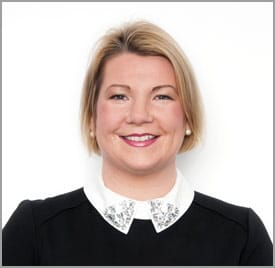By Joanne McEnteggart, co-managing director, Ireland, for First Names Group
Biosimilars could offer a more affordable alternative to biologic medications, which is good news for companies, patients and Ireland’s pharma industry.
If you’ve never heard the words biosimilars or biologics, you’re not alone. I confess they were new to me until we started working with a number of clients active in this area. Hopefully all will become clear by the time you reach the end of this post!
Biosimilars are very close copies of expensive biologics used to treat diseases such as cancer, diabetes and anemia. These costly medicines are made or extracted from living cells, typically an engineered bacterium or a yeast.
The complex structures of biologics mean that they cannot be recreated; so a generic version (or exact copy) of a biologic cannot be manufactured. However, it is possible to create a very similar medicine (a biosimilar) that has equally effective clinical results.
A GROWING SECTOR
Biosimilars have been circulating in Europe since 2006. As of May 2016, the European Medicines Agency has approved 20 biosimilars and has a further eight biosimilars under review. In contrast, the Food and Drug Administration (FDA) in the US did not approve the first biosimilar until March 2015 and approved a second in April 2016.
That approval rate may increase, as the FDA is repeatedly finding no clinically meaningful differences in safety or potency between biosimilars and original biologics.
In fact, the agency has suggested in several cases that trial data are good enough to support approving a biosimilar drug to treat all conditions the original product treats without running clinical trials in each disease. That should make approval of these drugs easier and accelerate their uptake.
Biosimilars are very close copies of expensive biologics used to treat diseases such as cancer, diabetes and anemia
This is promising for companies looking to get into this growing sector of the pharma industry, especially with some key biologic patents expiring over the next several years.
Of course, the price of development is still a serious consideration, with biosimilars costing about $75m to $250m to reach approval stage compared to $2m to $3m for a generic small-molecule medicine.
However, the potential to recoup that investment clearly exists. Biologics accounted for six of the 10 best-selling medicines globally in 2014 (the latest year for which data are available), with approximately $49bn in combined sales.
CHEAPER PRODUCTS
The impact of those first US approvals has been felt in Ireland. Already this year, First Names Group has been in discussions with two companies who are looking to develop facilities here in order to manufacture biosimilars.
These companies currently carry out research in Ireland and are also considering holding their IP here.
The fact that Europe has a five to eight year lead over the US with respect to biosimilars is a key factor in their decision to set up manufacturing operations in Ireland, especially when added to other known benefits of Ireland as a location for entry into the EU market. These include a pro-business environment, the availability of an educated, experienced workforce, common language and access to the common market and single currency.
The increased interest in biosimilars is good for patients, as biologics should become cheaper
The increased interest in biosimilars is good for patients, as biologics should become cheaper. It’s also good for Ireland’s substantial pharma sector – we were the seventh largest exporter of medicinal and pharmaceutical products in the world in 2014 – especially with some of the big pharma players becoming involved in biosimilar development.
As for me, I certainly look forward to working with more clients involved in biosimilars as they establish Irish companies – and to increasing my vocabulary along the way.
Image (above): Ernest Duffoo
About the blogger
 Joanne McEnteggart is co-managing director, Ireland, for First Names Group, an independent provider of corporate, fund and trust services across 14 jurisdictions that helps people develop their businesses internationally.
Joanne McEnteggart is co-managing director, Ireland, for First Names Group, an independent provider of corporate, fund and trust services across 14 jurisdictions that helps people develop their businesses internationally.
Joanne not only manages the day-to-day operations of the Shannon and Dublin offices, she also plays a key role in developing the corporate business across the Group’s network, which ranges from New York to Hong Kong.



